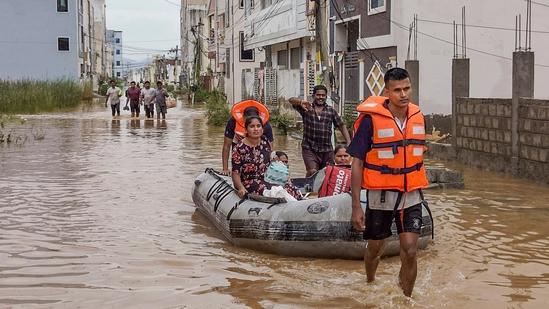Unveiling the Psychological Impact of Flooding in Bosnia and Herzegovina
The devastating floods that have struck Bosnia and Herzegovina have left a visible mark on homes, infrastructure, and livelihoods.However, as recovery efforts unfold, an often-neglected aspect emerges: the significant psychological impact on those affected. A recent report from the World Health Organization (WHO) highlights this critical mental health burden, urging local authorities and humanitarian groups to integrate mental health services into their disaster response strategies. While communities work to repair physical damage caused by flooding, experts warn that emotional scars may linger long after the waters recede; thus making mental health support a vital component of recovery initiatives. This article delves into the psychological effects of flood disasters, underscores the pressing need for effective mental health strategies, and outlines how communities can begin to heal from both visible destruction and hidden trauma.
Understanding the Psychological Impact of Floods
The fallout from flooding goes far beyond immediate physical damage to structures and infrastructure. In areas like Bosnia and Herzegovina, survivors often grapple with deep-seated psychological issues that can persist long after floodwaters have receded. Individuals affected by such calamities may experience a range of mental health challenges, including post-traumatic stress disorder (PTSD), anxiety, and depression. The chaos brought about by such events combined with ongoing recovery efforts can lead residents to feel overwhelmed.
The collective nature of flooding further complicates emotional healing processes. In tightly-knit communities where shared experiences abound, communal grief can amplify feelings of isolation among individuals who are collectively facing loss. Addressing these challenges necessitates a targeted approach towards mental health support which could encompass:
- Creating community support networks aimed at fostering connections among residents.
- Integrating counseling services into recovery programs.
- Launching public awareness campaigns designed to destigmatize discussions around mental health issues.
A extensive strategy that weaves mental wellness into disaster response plans is essential for helping communities rebuild not only their physical environments but also their emotional strength.
Enhancing Mental Health Support After Floods
As regions in Bosnia and Herzegovina begin reconstructing following severe floods, it is indeed imperative to comprehensively address survivors’ psychological needs. Many individuals encounter various emotional disturbances such as anxiety or PTSD during this challenging period.Mental health support systems should be established offering accessible resources like counseling sessions,peer-led support groups ,and crisis intervention hotlines specifically designed for those impacted by natural disasters.
Additonally,educational programs would play a crucial role in facilitating recovery within these communities.Workshops could empower residents with knowledge about recognizing signs indicative of distress while emphasizing the importance of seeking help when necessary too.Strategies aimed at bolstering community resilience alongside social cohesion will assist in alleviating trauma’s negative effects over time.
The table below presents effective community-based approaches tailored for supporting mental well-being during post-disaster recovery:
| Tactic | Description |
|---|---|
| Peer Support Groups | Create environments where shared experiences foster mutual understanding among participants. |
| Crisis Counseling Services | Provide immediate assistance tailored towards individuals experiencing distress . |
| Workshops Focused On Coping Mechanisms | Equip participants with practical tools aimed at effectively managing stress levels. |
| Community Awareness Initiatives | Promote available resources while striving towards reducing stigma associated with seeking help. |
















